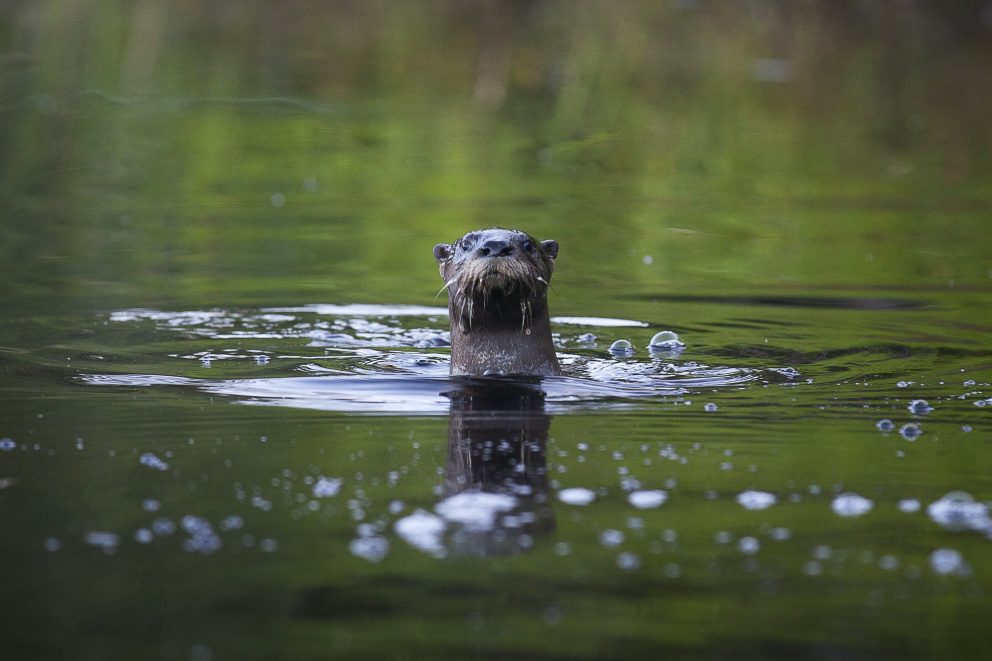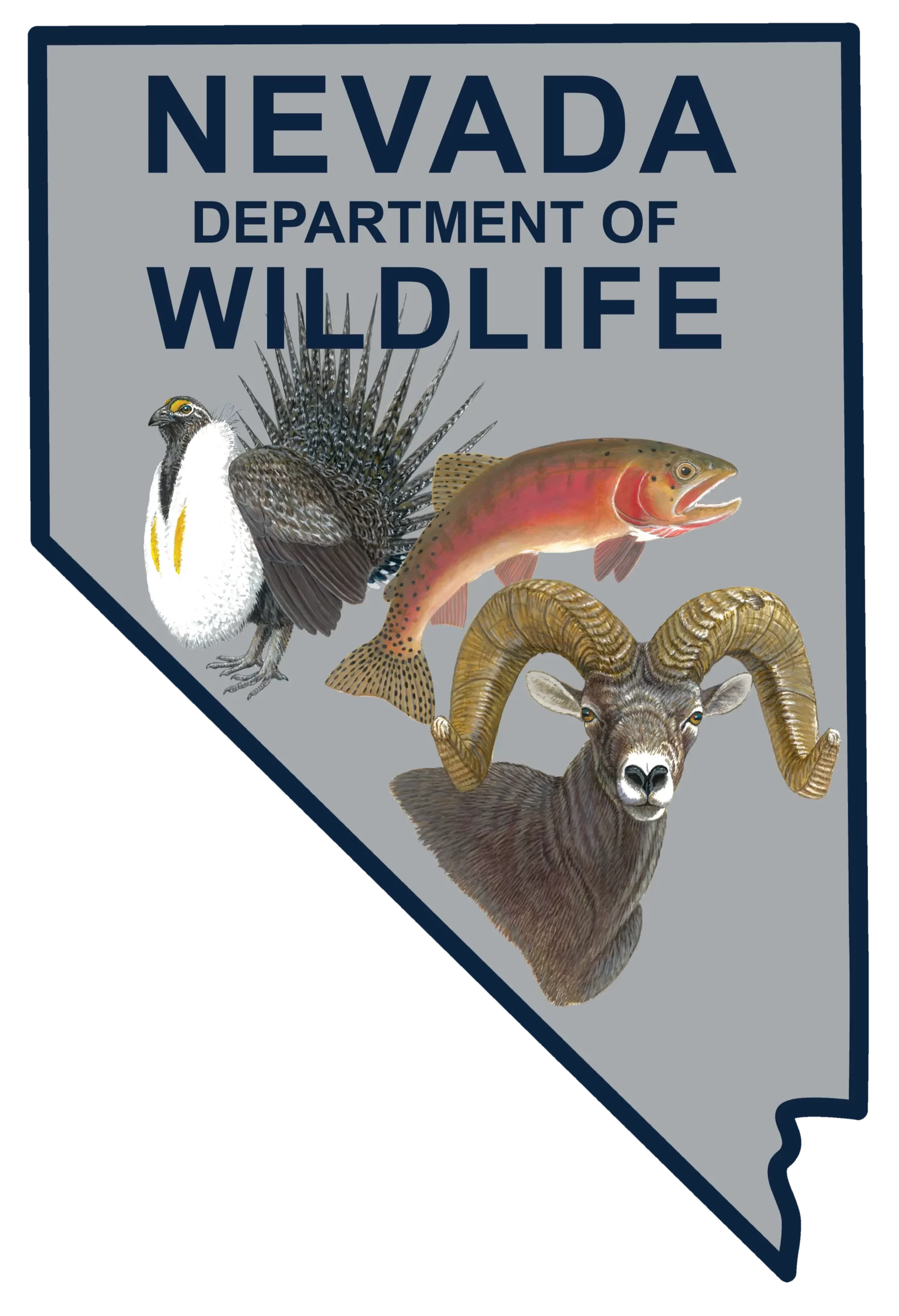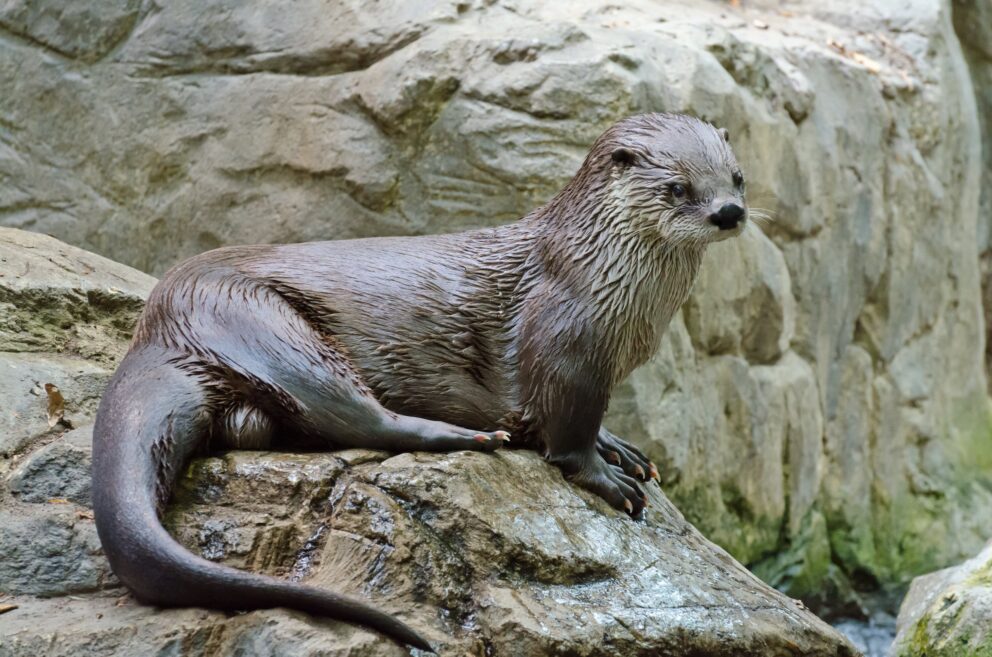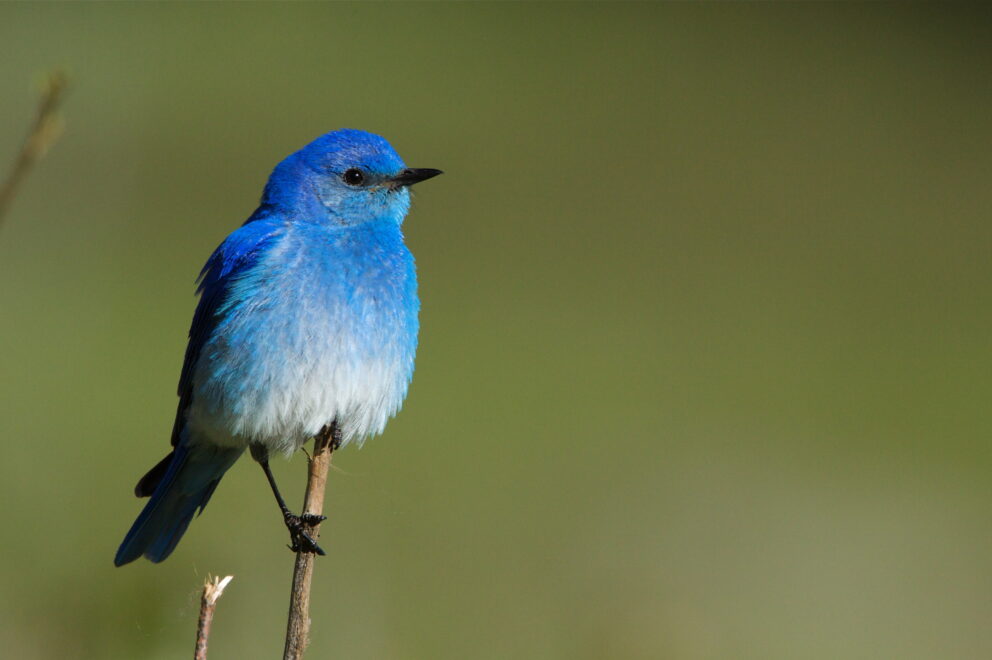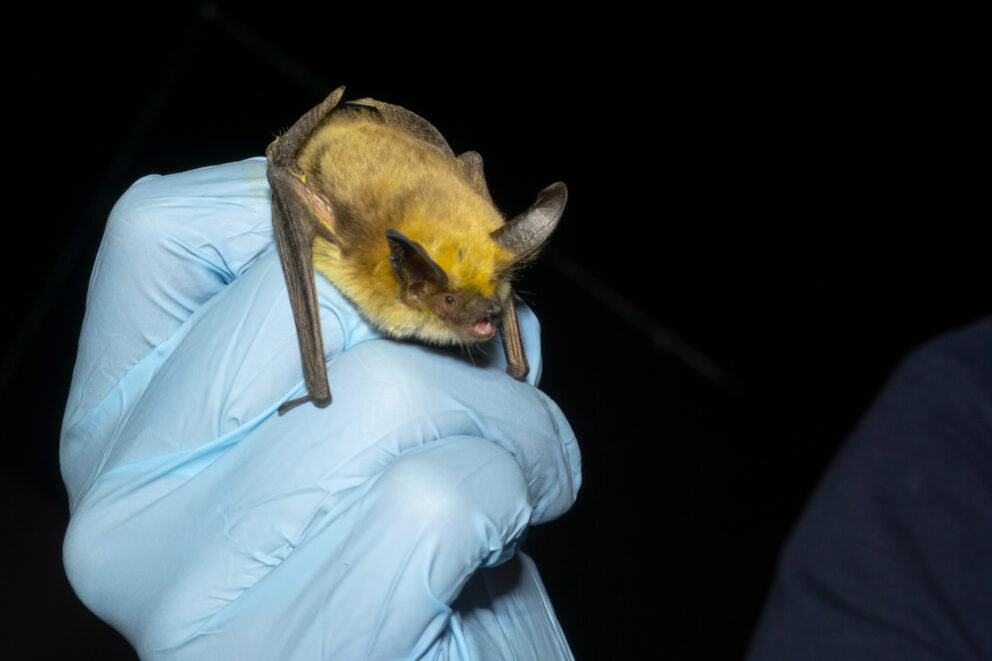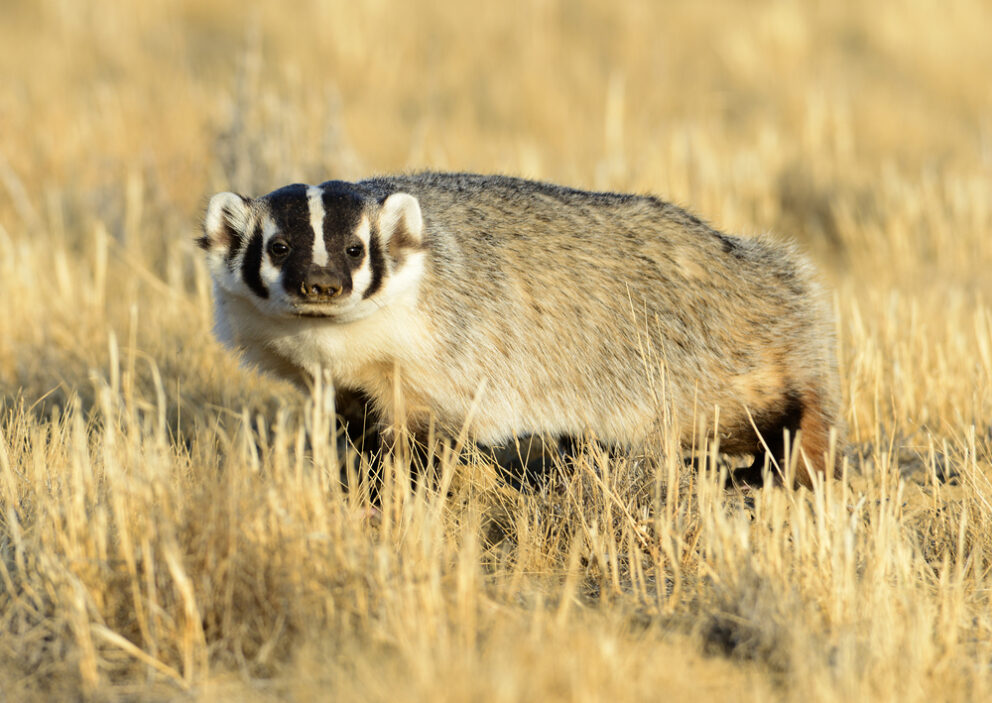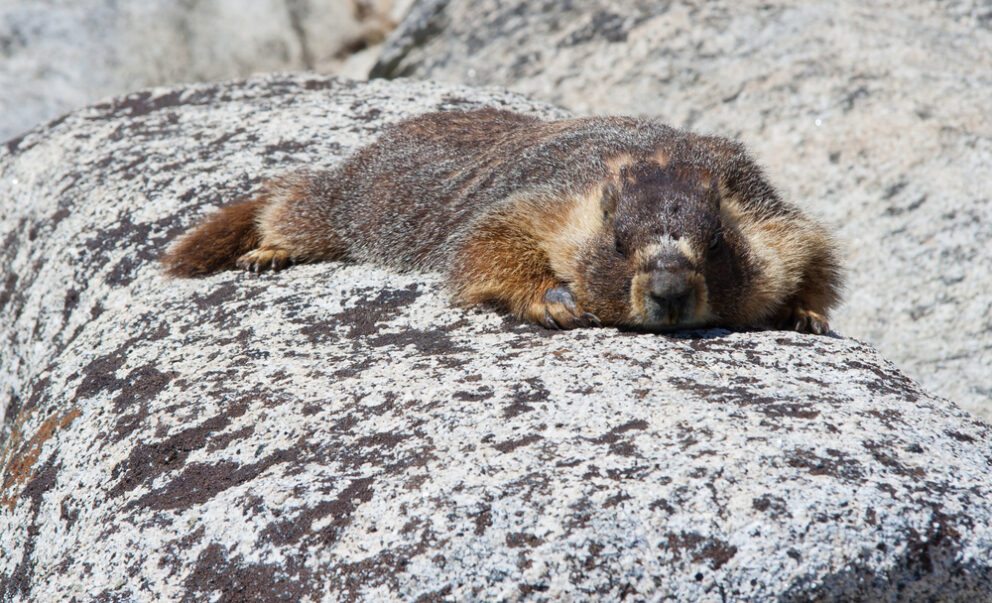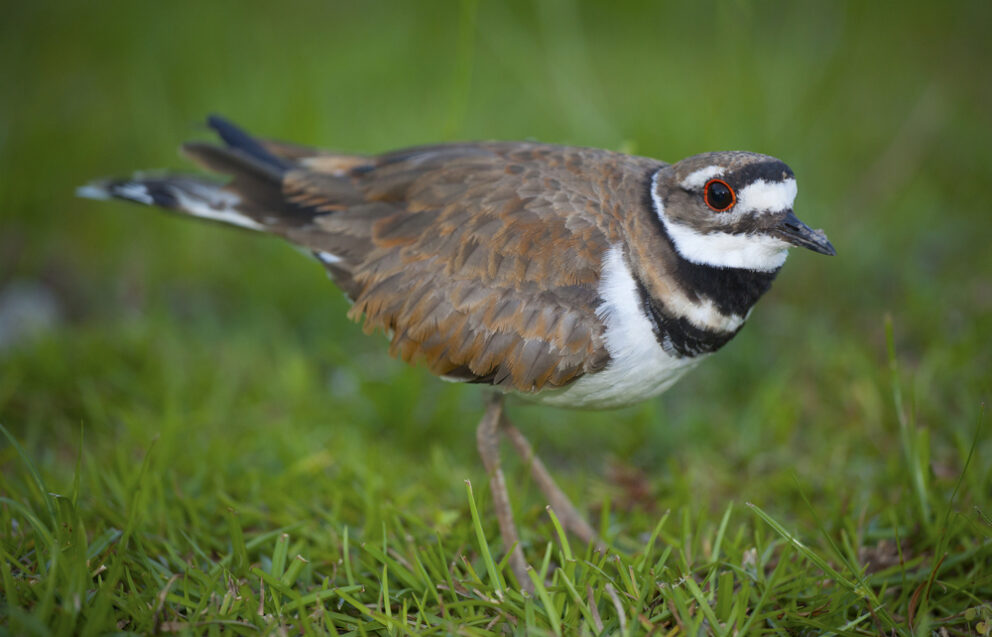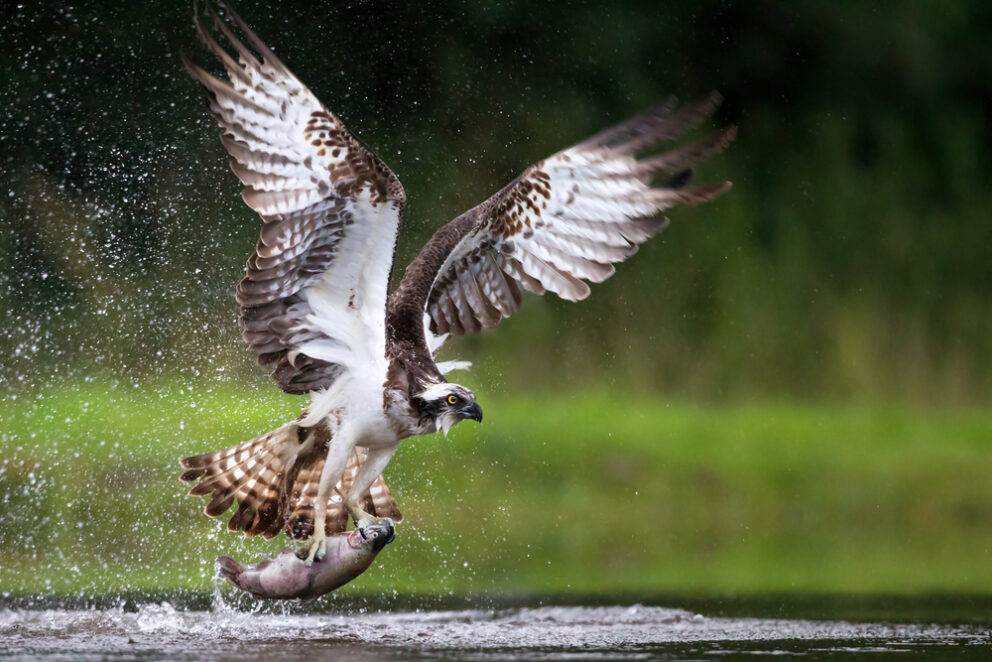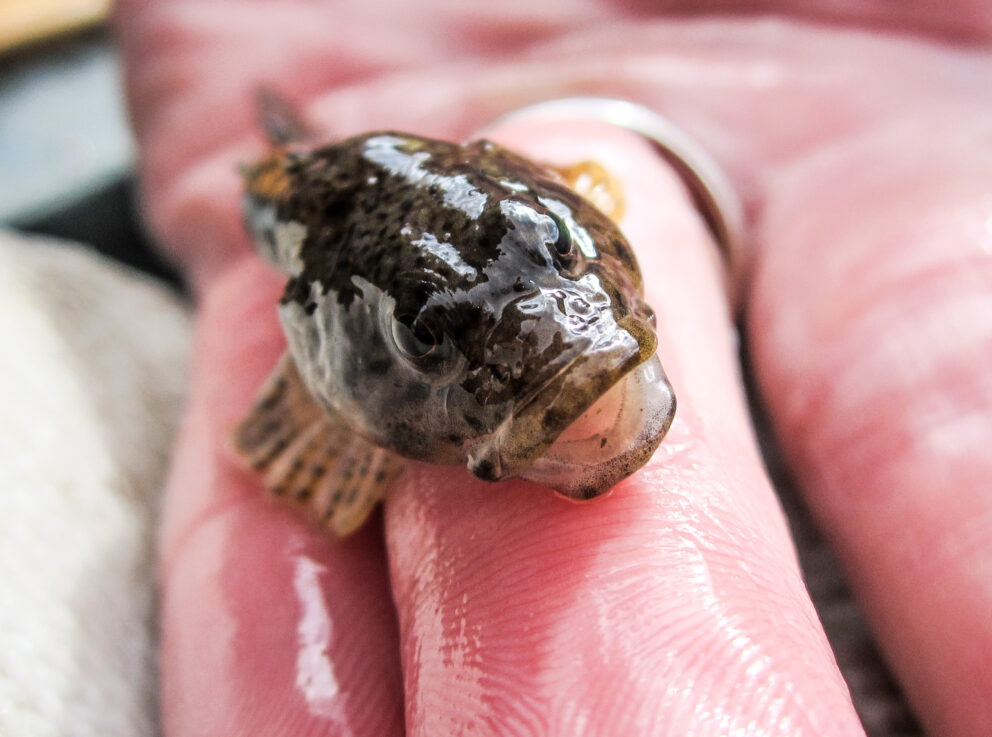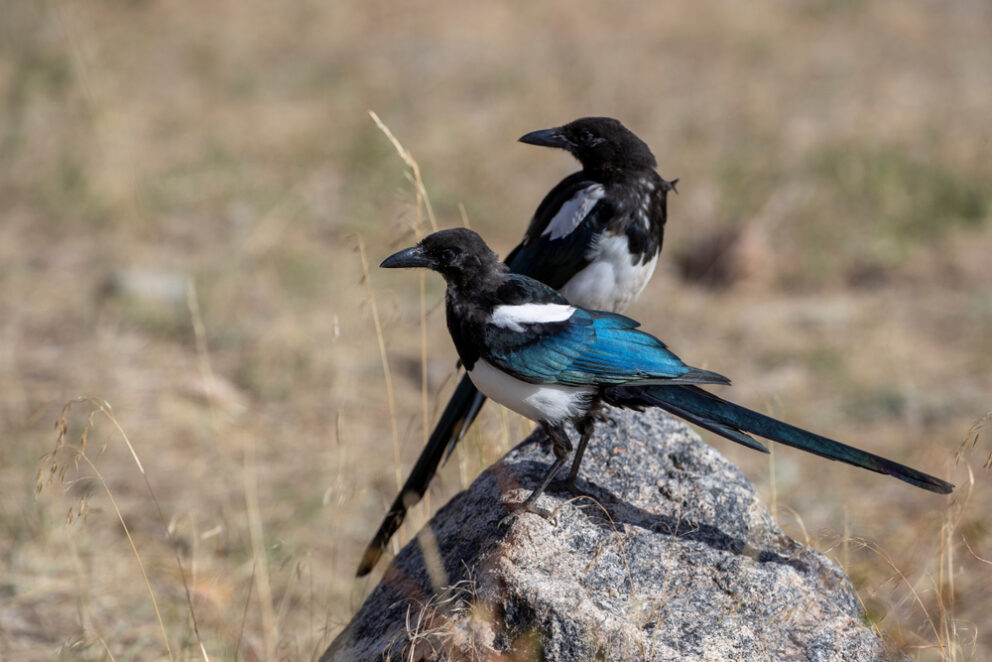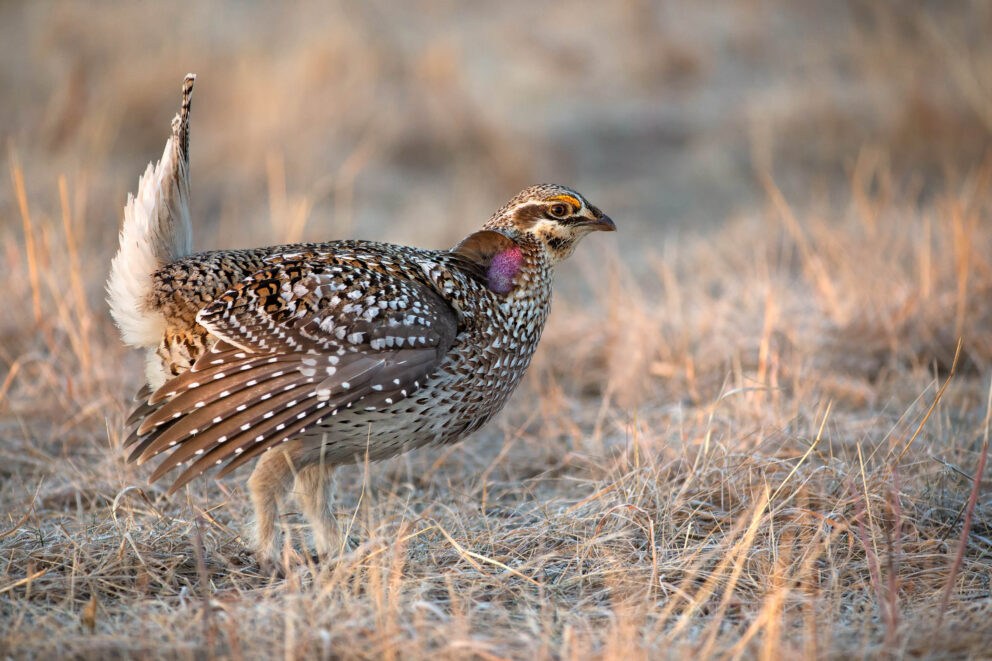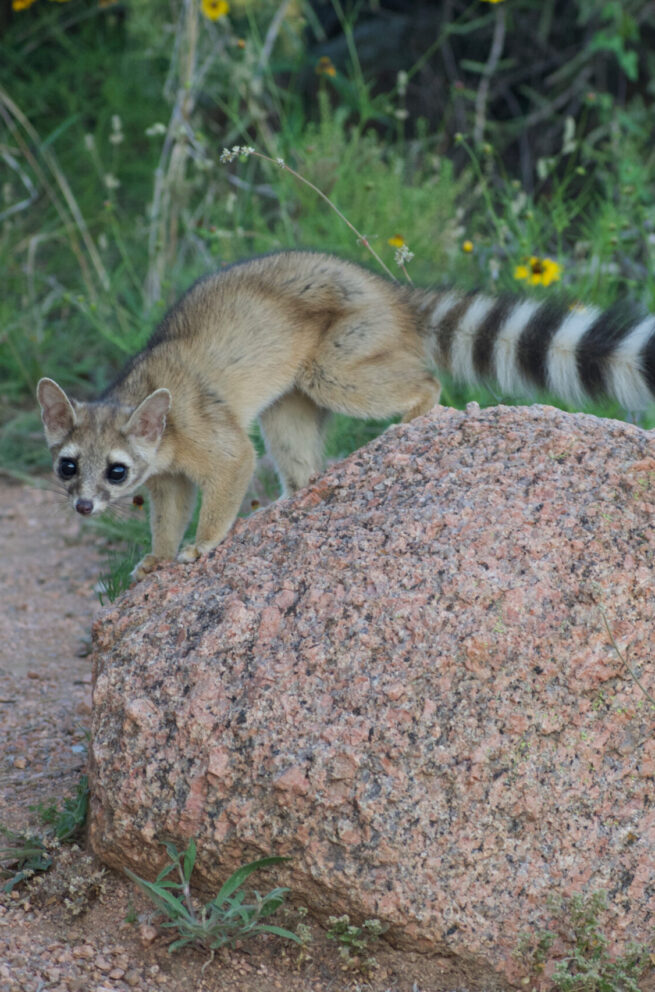- SCIENTIFIC NAME
- Lontra canadensis
- CLASSIFICATION
- Mammal
- LIFE SPAN
- 8-9 Years
- SIZE
- 30-48” | 11-30lbs
- STATE CONSERVATION STATUS
-
- State Protected
- FEDERAL CONSERVATION STATUS
- Least Concern
- GAME STATUS
- Game
- GAME TYPE
- Furbearer
- Washoe
- Humboldt
- Pershing
- Churchill
- Mineral
- Lyon
- Douglas
- Carson City
- Storey
- Elko
- Lander
- Eureka
- White Pine
- Esmeralda
- Nye
- Lincoln
- Clark
Habitat & Range
The North American River Otter lives in slow moving water with abundant riparian plants and fish. They have been found to use the dens of other animals rather than creating their own.
- Lakes and reservoirs
- Marsh
- Rivers and streams
Threats
- Habitat Degradation
Natural History
River Otters are aquatic mammals that are highly adapted to hunt prey in the water. They have great eyesight both above and below water, and whiskers that can detect underwater prey. They like to eat fish, frogs, crawfish, and insects, and sometimes will also consume birds and small mammals. River Otters tend to move into abandoned beaver lodges or muskrat dens rather than building or constructing their own. River Otters give birth around late winter into early spring and can have up to 6 pups at a time. Pups will hang around their mother until they are about ten months old. In mother-offspring groups, Otters will use scent, body language, touch, and sound to communicate with one another.
Fun Facts
